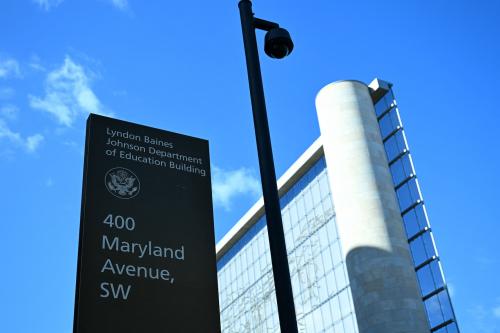Ugandan parliament passes controversial tax against social media and messaging internet platforms
On Thursday, May 31, Uganda’s parliament passed a controversial, so-called “gossip tax” that imposes fees on users of “over-the-top” platforms. The tax will charge 200 Ugandan shillings ($0.05) a day to subscribers using WhatsApp, Twitter, Facebook, and similar sites.
Notably, though, despite the law’s passage and implementation date of July 1, authorities have not yet stated how the tax will be collected. The law also creates a 1 percent tax on any mobile money transactions. The law follows President Yoweri Museveni’s March 12 letter to Finance Minister Matia Kasaija, in which he stated, “I am not going to propose a tax on internet use for educational, research, or reference purposes…these must remain free. However, olugambo [opinions, prejudices, insults, friendly chats] on social media and advertisements by Google and I do not know who else must pay tax because we need resources to cope with the consequences of their lugambo [gossip].”
Opposition leaders and free speech defenders have called the move “diversionary, deceptive, injurious to individual freedoms, and burdensome.” Similarly, activists have decried the tax (and its high price of 200 shillings) as a move to curb free speech and lower the use of the internet, as Ugandans typically buy data in bundles between 500 and 1000 shillings. Quartz Africa reports that the new tax could be “prohibitive” given the already high data costs and wide use of these social media sites.
The administration, though, denies that the costs will prevent citizens from using the internet and instead hails the revenues the tax could bring in—estimated to be anywhere between 400 billion and 1.4 trillion shillings—to pay off the national debt or increase electricity access.
Museveni’s administration has a history of curtailing access to social media: During the 2016 elections, the government blocked both Twitter and Facebook. Earlier this year, the government also mandated that internet service providers suspend unlicensed news sites.
Efforts to root out government corruption in Kenya yield progress
In Kenya, protestors hit the streets of Nairobi on Thursday to voice their anger over the latest scandal to hit the country’s youth agency, the National Youth Service (NYS). On Tuesday, 24 government officials and business people linked to the agency were charged in court with the theft of nearly $100 million of public funds—as well as forgery and abuse of office—which the suspects deny. The NYS is responsible for providing vocational training and other services to Kenya’s youth. However, a recent probe into unpaid suppliers of the agency revealed that government officials allegedly used ghost suppliers, multiple payments, and fake invoices to siphon public resources from the NYS. This is the agency’s second graft scandal in three years.
On Wednesday, President Uhuru Kenyatta—who has declared tackling corruption a priority throughout his presidency—stated that the government would recover the stolen funds and issued a warning to the culprits, saying, “There will be no mercy for the thieves. Their days are numbered. They will be prosecuted and jailed.” Furthermore, Kenya’s Central Bank Governor Patrick Njoroge commented that the Central Bank would work with the Department of Criminal Investigations to ensure that the commercial banks used to process the fraudulent transactions from the NYS would suffer consequences. He argued that under the country’s strengthened anti-money laundering and counter financing of terrorism laws, bank officials would be held responsible for facilitating the fraud since “the chief executives are under oath that they understand and are compliant with these laws. There cannot be any excuse that one does not understand them.”
Buhari signs ‘Not too young to run bill,’ Guinea reshuffles cabinet, and Zimbabwe announces election date
On Thursday, May 31, Nigerian President Muhammadu Buhari signed the “Not too young to run bill” into law. The bill amends several sections of the constitution and reduces the minimum age to run for president, governor, or senator to 30 years. Previously, the minimum age was 40 years to run for president and 35 for governor or senator. For the House of Representatives and State House Assembly, the age is lowered from 30 to 25 years. The National Assembly originally passed the bill in 2017 and more than two-thirds of states have already adopted it.
In other political news, this week, President Alpha Condé of Guinea reshuffled his cabinet, replacing 13 out of 33 ministers, including the finance, budget, and security ministers. In recent weeks, Condé has had to appoint a new prime minister after the previous prime minister resigned along with his administration. In recent months, political tensions have risen in Guinea, with riots in February leading to 10 deaths as Condé’s opponents fear that he will modify the constitution to run for re-election in 2020.
In election news, Zimbabwe announced that presidential and parliamentary elections would be held on July 30 this year. These will be the first elections held in Zimbabwe after the ouster of former President Robert Mugabe. Following the announcement, opposition parties called for protests next week to demand electoral reforms including access to voter rolls, an explanation for an increase in the number of polling stations, and equal access to the media. President Emmerson Mnangagwa has already invited observers from the commonwealth to monitor the election process. According to experts, internationally recognized democratic elections are a key step in helping Zimbabwe access international financing again after almost 20 years.
The Brookings Institution is committed to quality, independence, and impact.
We are supported by a diverse array of funders. In line with our values and policies, each Brookings publication represents the sole views of its author(s).





Commentary
Africa in the news: Uganda’s ‘gossip tax,’ Kenya’s corruption probe, and a politics roundup
June 1, 2018